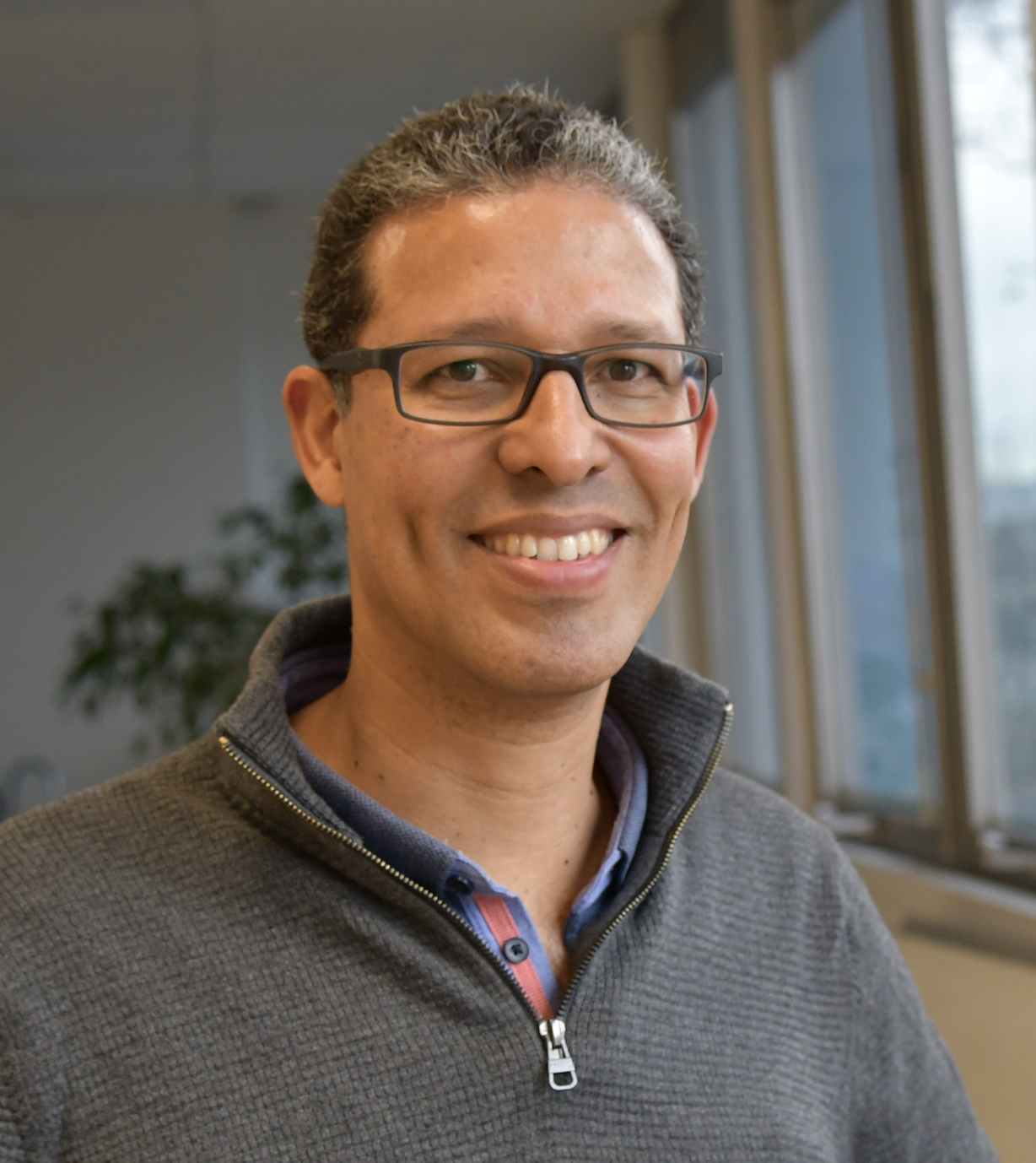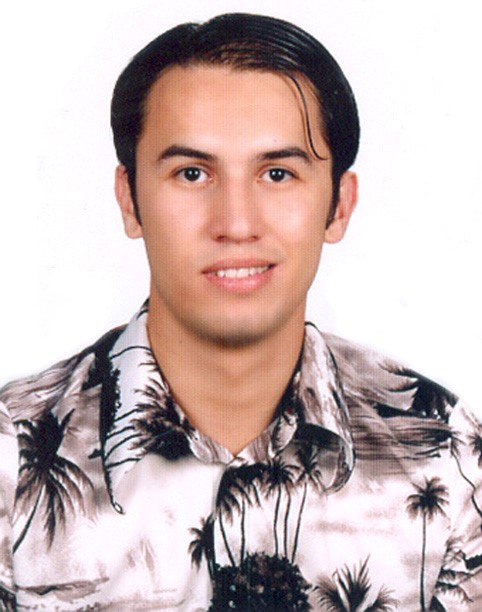
John J. Martinez
Grenoble INP - Ense3
Université Grenoble Alpes.
Control Systems Department, GIPSA-lab.
Biography: John J. Martinez was born in Cali, Colombia. He received the B.Sc. degree in electrical engineering and the M.Sc. degree in automatic control from the Universidad del Valle, Cali, in 1997 and 2000, respectively, and the Ph.D. degree in automatic control from the Institut National Polytechnique de Grenoble, Grenoble, France, in 2005. He joined the Universidad Nacional de Colombia, Medellín, Colombia, as a Teacher Assistant, from 2001 to 2002. He was an Invited Visitor with the Centre for Complex Dynamic Systems and Control, The Newcastle University, Callaghan, NSW, Australia, in 2005, 2007, and 2009. He is currently Full Professor with the GIPSA Laboratory, Department of Control System, Institut National Polytechnique de Grenoble, Grenoble. His current research interests is related to modeling and robust control of mechatronic systems (e.g. Polytopic system modeling, Linear Parameter-Varying systems, Switching control and Invariant-Set Theory for Fault-Tolerant Control and Robust Disturbance Estimation/Rejection), mostly in the following applications: Automotive vehicle dynamics, Aerial vehicle dynamics, Wind turbines control, Physiologic-aware electric bikes and Anti-vibration systems.
Speech Title: Health-aware Control for Mechatronic Systems in Degradation
Abstract: In this talk we present a state-space approach for controlling the Remaining Useful Life (RUL) of deteriorating mechatronic systems. The proposed approach supposes the availability of a deterioration model that links the deterioration rate with some manipulable control inputs. Such a link can be a non-linear monotonic function between the deterioration-rate and the manipulable control inputs. We propose a method for designing both state observer and state feedback controller for RUL prediction and control. We consider that the manipulable inputs are affected by additive random disturbances and possible multiplicative unknown parameters. In addition, we assume that the control decisions can not be applied instantaneously on the system, which is modeled as a time-delay between control decisions and manipulable inputs of the deterioration dynamics. The proposed methodology is illustrated on several applications related to power transmission systems, friction drive systems, applications using Lithium-ion batteries, among others.

Mehmet Emir Koksal
Ondokuz Mayis University, Department of Mathematics 55139 Atakum, Samsun, Turkey
Biography: Mehmet Emir Koksal is a Professor of Mathematics at the Ondokuz Mayis University. He received his Ph.D. in Mathematics from Gebze Institute of Technology, Turkey in 2009. After receiving his Ph.D., he studied as a Postdoctoral Researcher at the Department of Mathematical Sciences, Florida Institute of Technology, Melbourne between 2009 and 2010. In 2014, he passed the exam held by The Presidency of the Inter-University Council of Turkey and received the title of Associate Professor in Mathematics. He was a Visiting Professor at the Chair Mathematics of Systems Theory in the Department of Applied Mathematics at the University of Twente from 2022 to 2023. In 2023, he also became associate professor of electrical and electronics engineering and in Turkey, he is the first scientist who has become an associate professor of electrical and electronics engineering whilst being a mathematics professor.
His research interests are in systems and control theory, circuit and system theory, differential equations, and numerical analysis. The main focus is on the development and analysis of commutativity conditions of time-varying systems, feedback systems, decomposition and transitivity properties of commutativity, and applications of commutativity in physical systems using differential and difference equations. He also studies ordinary and partial differential equations, their numerical solution methods, and mathematical modeling and analysis of various engineering problems using differential equations. He has published many research papers in eligible international journals, and he has many proceedings presented at famous international conferences. He reviewed over 200 manuscripts for 60 different international peer-reviewed journals and 40 different international conferences. His research has been mainly supported by the Scientific and Technological Research Council of Turkey. In this field, he has led two national projects, one of which was awarded a project performance award. He has been a keynote speaker, invited speaker and a member of the organizing and scientific committees of many well-known international conferences.
Speech Title: Fractional Order Thinking and Modeling in Control Theory
Abstract: Fractional calculus has become very famous and popular subject in recent years. It is used as a powerful and important mathematical modelling tool, for defining, investigating, analyzing, solving, and discussing many different types of engineering, physical, chemical, statistical, and social problems in real life. In fact, fractional order (FO) dynamic models simulate characteristics of real dynamic systems better than the integer order models. In this lecture, I will introduce basic concepts of fractional calculus, present various applications in distinct areas of science and engineering, and predict possible future research trends on this topic. The content of my speech is more concisely expressed as follows.
After reviewing the important definitions of FO integration and differentiation, usefull continious and discrete approximation methods and their digital and analog implementations are elaborated. Integer order approximation is introduced as a frequent tool for approximating FO transfer functions (FOTF).
Most commenly used Matlab toolboxes which facilitate utilizing FO calculus in the control field and other areas are presented. Namely open reach toolboxes such as FIT, CRONE, FOMCON, FOTF, NINTEGER, Syquake-FOPID will be extracted.
As for the most common uses, fractional order propotional-integral-derivartive (PID) controllers and lead-lag controllers (LLC) draw grate attention in the control engineering area. Many systems either themselves modelled by FO Dynamics (FOD) and/or controlled by FO controllers (FOC) apperrarded for tuning desired time-constant, gain and phase margins, gain crossover frequency, controller effort, whilst adjusting desired robustness and stability requirements and minimizing the error according to some performance criteria. In particular, stability boundary locus methods are described fort the best tuning of the controller parameters.
Use of FO calculus and its interaction with genetic algorithms and fuzzy neural systems will be mentioned.
Specially, to point out the application of the subject in a wide area, fractional order electrical filters and their circuit implementations, speed and torque control of different motors (DC, AC, permenant magnet, induction), power and power quality control systems, time-delay systems, biomedical applications, are some of the topics that will be covered in my talk.
I will terminate my talk by mentioning doyens and masters who contributed FO calculus and its applications in social and basic sciences as well as in engineering; forward opinions about where the subject will go and which researches it will lead to in the future.